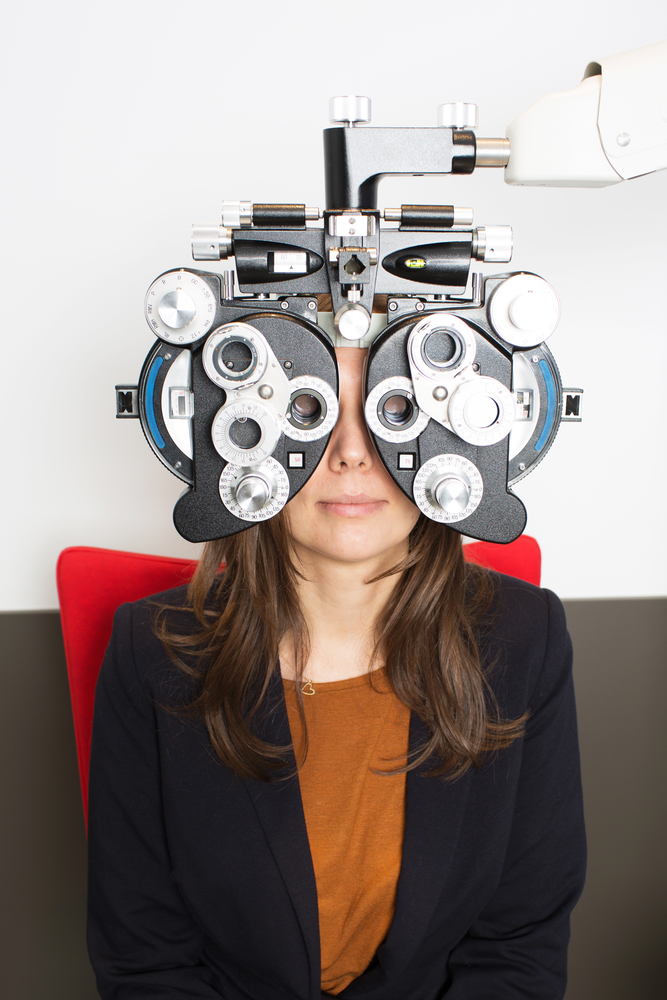The Importance of Comprehensive Eye Exams: Why Regular Check-ups Matter
Blog:The Importance of Comprehensive Eye Exams: Why Regular Check-ups Matter

The Importance of Comprehensive Eye Exams: Why Regular Check-ups Matter
Your eyes are one of your most precious assets, allowing you to navigate the world and experience life to the fullest. However, many people overlook the importance of regular comprehensive eye exams, prioritizing their overall health and well-being. By understanding the comprehensive nature of these exams, you can make informed decisions about your eye health and take proactive steps to maintain it.
What is a Comprehensive Eye Exam?
A comprehensive eye exam is a multi-faceted process that examines various aspects of your visual system. During the exam, your eye doctor will typically perform the following tests and assessments:
- Visual Acuity Test: This test measures your ability to see clearly at different distances, using an eye chart or other visual aids.
- Refraction Test: This test determines the precise prescription for your eyeglasses or contact lenses, ensuring that your vision is optimized.
- Slit Lamp Examination: Using a specialized microscope, your eye care professional will examine the front structures of your eye, including the cornea, iris, and lens, to identify any abnormalities or signs of disease.
- Tonometry: This test measures the pressure inside your eye, which can help detect conditions like glaucoma.
- Dilated Eye Exam: Your eye care professional will use eye drops to dilate your pupils, allowing for a more thorough examination of the internal structures of your eyes, including the optic nerve and retina.
- Color Vision Testing: This assessment evaluates your ability to perceive colors accurately, which can be an indicator of certain eye conditions.
- Depth Perception and Binocular Vision Testing: These tests assess how well your eyes work together, ensuring proper eye muscle coordination and depth perception.
By undergoing a comprehensive eye exam, your eye care professional can gain a complete understanding of your visual health and identify any potential issues or concerns that may require further attention or treatment.
Eye Conditions That Can Be Detected Through Comprehensive Eye Exams
Comprehensive eye exams are not just about checking your vision; they also play a crucial role in detecting a wide range of eye conditions that can have a significant impact on your overall health and well-being. Some of the conditions that can be identified through these comprehensive examinations include:
- Refractive Errors: This includes nearsightedness (myopia), farsightedness (hyperopia), and astigmatism, which can be effectively managed with corrective lenses or other treatments.
- Glaucoma: This progressive eye condition can lead to vision loss if left untreated, and it is often detected through the tonometry test during a comprehensive exam.
- Cataracts: A clouding of the eye's natural lens, which can gradually impair vision, can be identified and monitored through a comprehensive exam.
- Macular Degeneration: This age-related condition can cause central vision loss and is often detected during the dilated eye exam.
- Diabetic Retinopathy: This eye condition, which can develop in individuals with diabetes, can be identified through a comprehensive exam, allowing for early intervention and management.
- Dry Eye Syndrome: This chronic condition, characterized by insufficient tear production or poor tear quality, can be diagnosed and treated through a comprehensive eye exam.
- Binocular Vision Disorders: Issues with eye muscle coordination and depth perception can be identified and addressed through the comprehensive exam process.
The Importance of Regular Eye Exams for Maintaining Eye Health
Comprehensive eye exams are not just a one-time event; they should be a regular part of your healthcare routine. Regular eye exams are crucial for maintaining your eye health and catching any potential issues before they become more serious.
Comprehensive eye exams can identify a wide range of eye conditions, many of which have no obvious symptoms in the early stages. By catching these issues early, your optometrist can provide timely treatment or management strategies, preventing further vision loss or other complications.
If you have been diagnosed with an eye condition, such as glaucoma or diabetic retinopathy, regular comprehensive exams allow your eye doctor to monitor the progression of the condition and make necessary adjustments to your treatment plan.
Your vision needs can change over time, and regular comprehensive exams ensure that your eyeglasses or contact lens prescription remains up-to-date, providing you with optimal visual clarity and comfort.
Comprehensive eye exams can sometimes reveal signs of underlying health conditions, such as diabetes or high blood pressure, which can have an impact on your eye health. Early detection of these issues can lead to timely medical intervention and better overall health outcomes.
The frequency of your comprehensive eye exams may vary depending on your age, medical history, and any existing eye conditions. However, it is generally recommended that adults have a comprehensive eye exam at least once every one to two years, while children and adolescents may require more frequent check-ups to monitor their developing visual system.
Prioritizing Comprehensive Eye Exams for Optimal Eye Health
Your eyes are a vital part of your overall health and well-being, and prioritizing comprehensive eye exams should be a crucial component of your healthcare routine. By undergoing these in-depth examinations on a regular basis, you can take proactive steps to maintain your eye health, detect and manage any potential issues, and ensure that your vision remains clear and comfortable for years to come.
Schedule a comprehensive eye exam with Texas State Optical and take the first step towards preserving your vision and maintaining your overall well-being. Visit our office in Spring, Texas, or call (832) 239-5723 to book an appointment today.


